How to prevent falls and keep your loved one safe at home
Falls are the leading cause of hospitalisations for people over the age of 65. The good news is that with the right prevention measures in place, you can significantly reduce the risk of a fall for you or your loved one.
Scroll to Explore
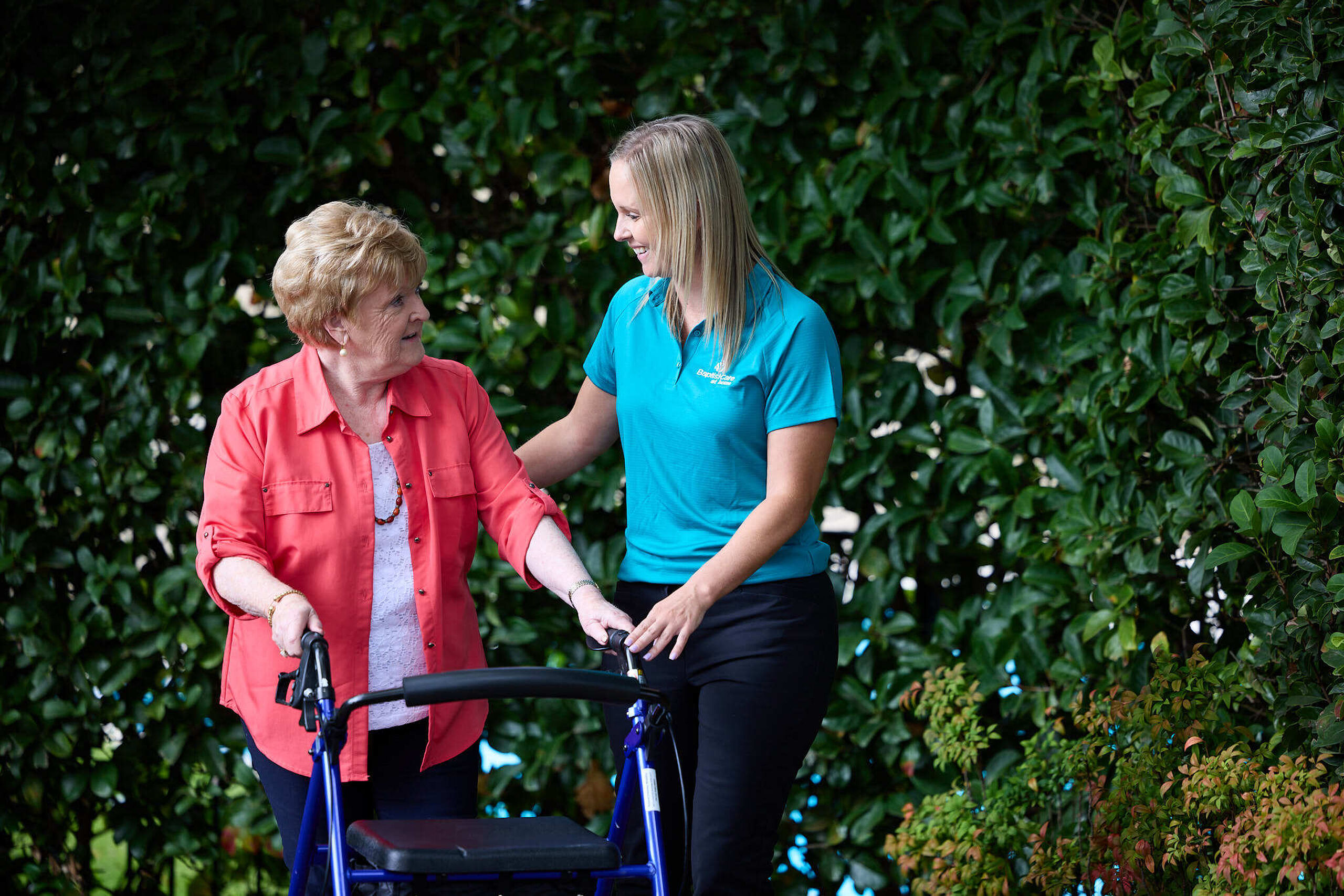
17 July 2024
Stories
| Home Care
The risks associated with a fall are certainly not limited to older adults —just look at some of the statistics for emergency hospital admissions in Australia, and you’ll quickly learn that the majority are due to some kind of fall.
The difference with older people is that they are at much higher risk of falling and, statistically, are more likely to have a severe injury because of that fall.
In Australia, falls account for forty per cent of injury-related deaths in older adults and are the leading cause of hospitalisations for people over the age of 65.
Many of these take place at home and are often preventable.
Speaking with two experts in this area - Ann, a Physiotherapist, and Amanda, an Occupational Therapist with BaptistCare at home – we learned about the primary causes – and prevention measures – of falls at home.
What causes older people to fall?
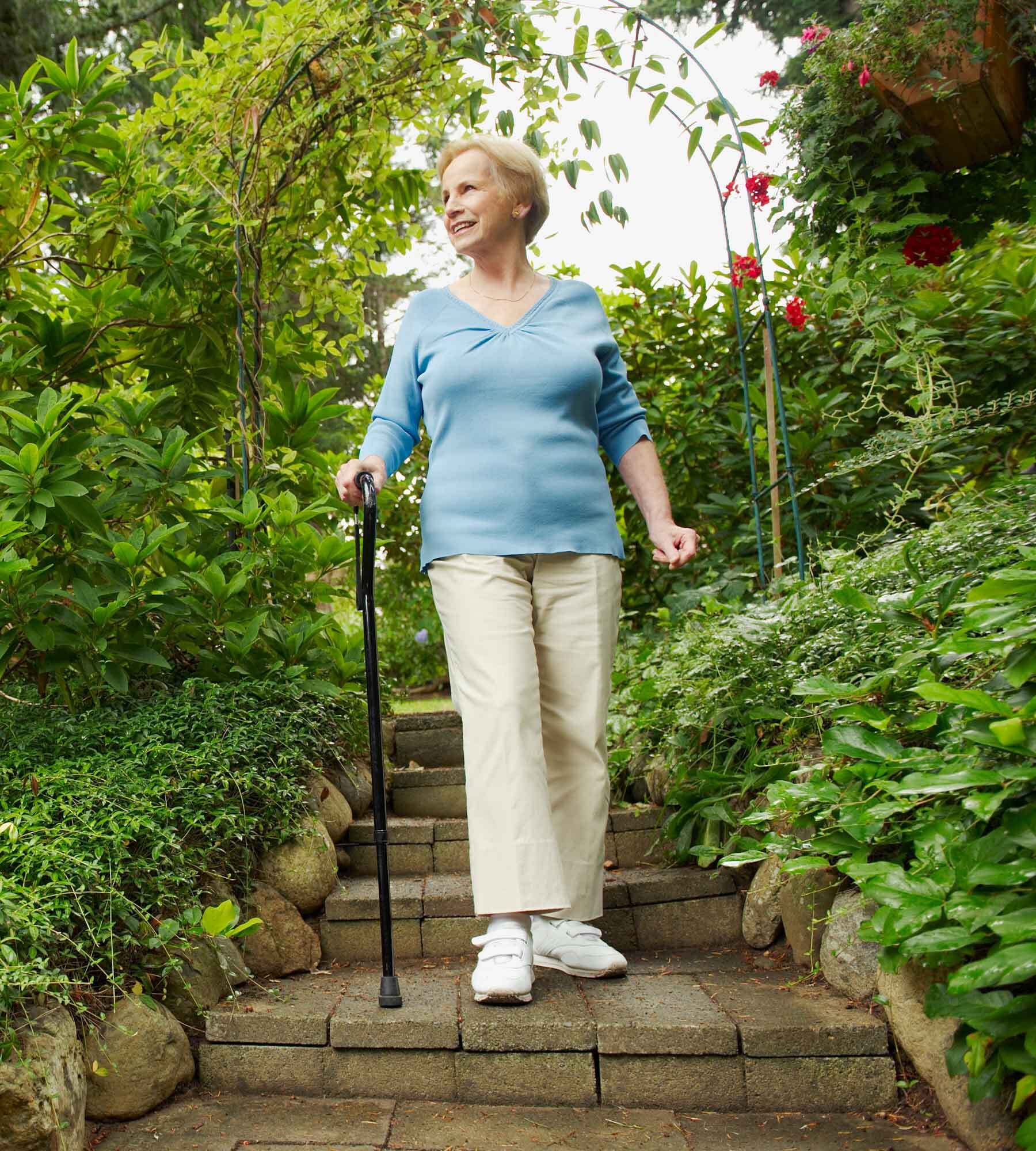
“There are a number of factors that come into play, but it’s often when they are combined that they carry a much higher risk,” explains Ann.
Some of the most common reasons older people fall are:
Reduced physical health
If you or your loved one live with certain medical conditions, these can increase the risk of falling. Take particular note of:
- Reduced muscle strength and bone density
- Medical conditions such as arthritis, osteoporosis, and Parkinson’s disease
- Medications (or a combination of medications) that cause drowsiness
- Vision or hearing impairment
- Incontinence – often incontinence at night carries the highest risk, with people being disorientated, sleepy, and unable to see as well in low lighting.
Trip hazards and the environment
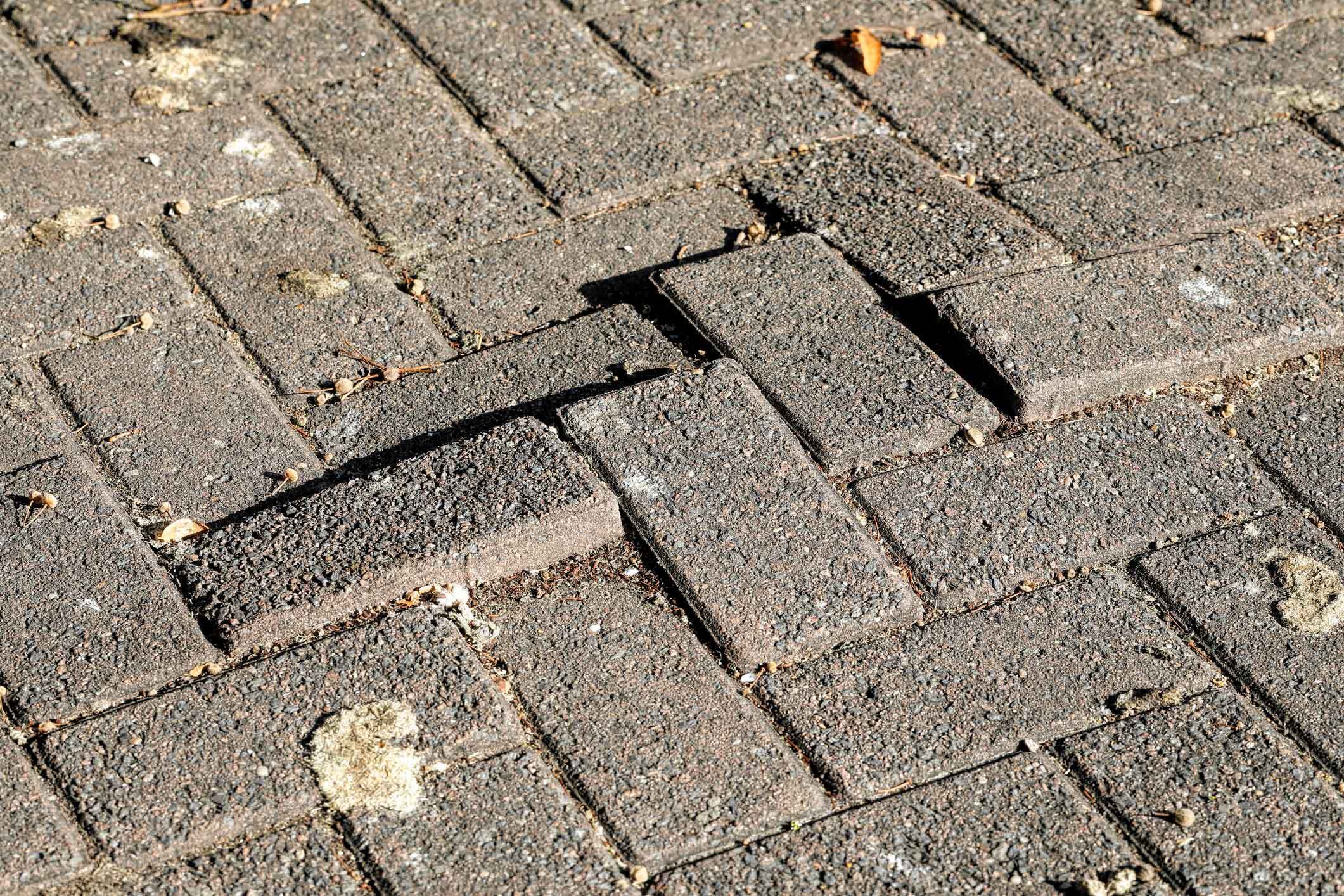
Ann and Amanda say it’s easy to develop ‘blind spots’ in and around our homes when it comes to trip hazards. Some of these might include:
- Clutter
- Poor lighting
- Loose floor mats
- Uneven flooring
- Lack of home modifications, grab rails and equipment
- Out in the community, trip hazards might look like uneven paths or slippery surfaces.
Your lifestyle
Many of us unknowingly slip into habits that heighten the risk of falling at home. Some of the following can be significant contributors:
- Wearing slip-on shoes or footwear that lack traction
- Alcohol consumption, which can impair judgement and coordination
- Not eating or drinking enough – a low-calorie intake and dehydration can make you feel lethargic, light-headed, and off balance
In addition, not eating enough protein throughout the day can also be linked to muscle loss and an increased risk of falls - Physical inactivity—not getting enough exercise can reduce flexibility and strength, increasing the risk of falling.
Your mental health
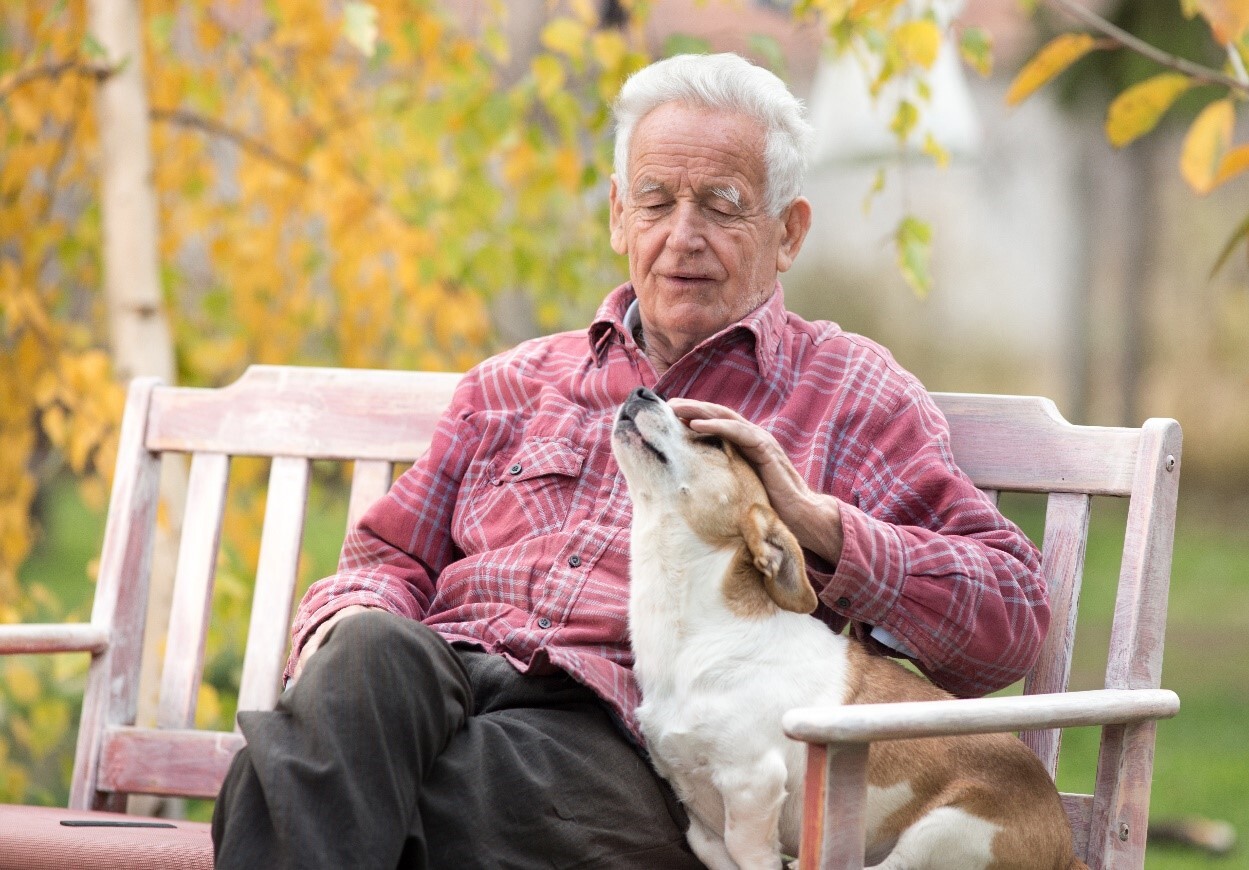
How you’re feeling emotionally can affect how readily you embrace lifestyle changes, which could reduce your risk of falling.
It’s essential to seek help if you’re experiencing any of the following:
- Social isolation
- Depression
- Anxiety
- Memory loss or cognitive impairment such as dementia
Why do falls lead to residential aged care?
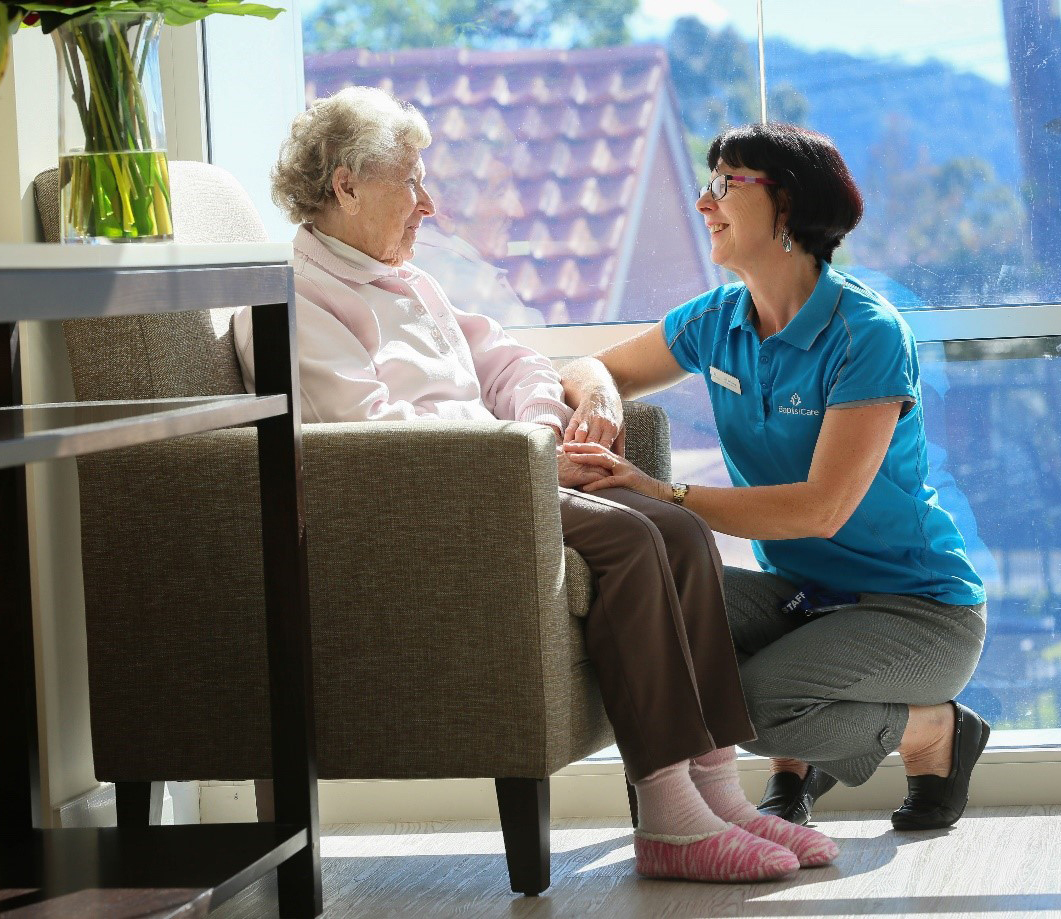
“Falls can have a domino effect on a person’s health and well-being, setting off a chain reaction that can result in a transition to residential care,” explains Amanda.
Some of the more common reasons for care home admission include:
- Inability to manage everyday tasks
Injury from a fall could make it difficult to manage everyday tasks like cooking, washing, or getting dressed.
- Post-operative complications
If surgery is required after a fall, there could be post-operative infections, complications, or simply a long recovery time – all of which can mean round-the-clock care.
- Caregiver burnout
This can mean that a caregiver quickly becomes exhausted, burnt out, and unable to cope—a common reason for care home admissions, according to Ann and Amanda.
What are allied health services, and why are they useful?
Receiving allied health services at home is a great way to get advice and practical support around preventing falls at home.
This multidisciplinary approach to care is included in your government-funded Home Care Package and is practised by tertiary educated, registered health professionals that include:
- Occupational Therapists
- Physiotherapists
- Exercise physiologists
- Podiatrists
- Dieticians
- Speech Pathologists
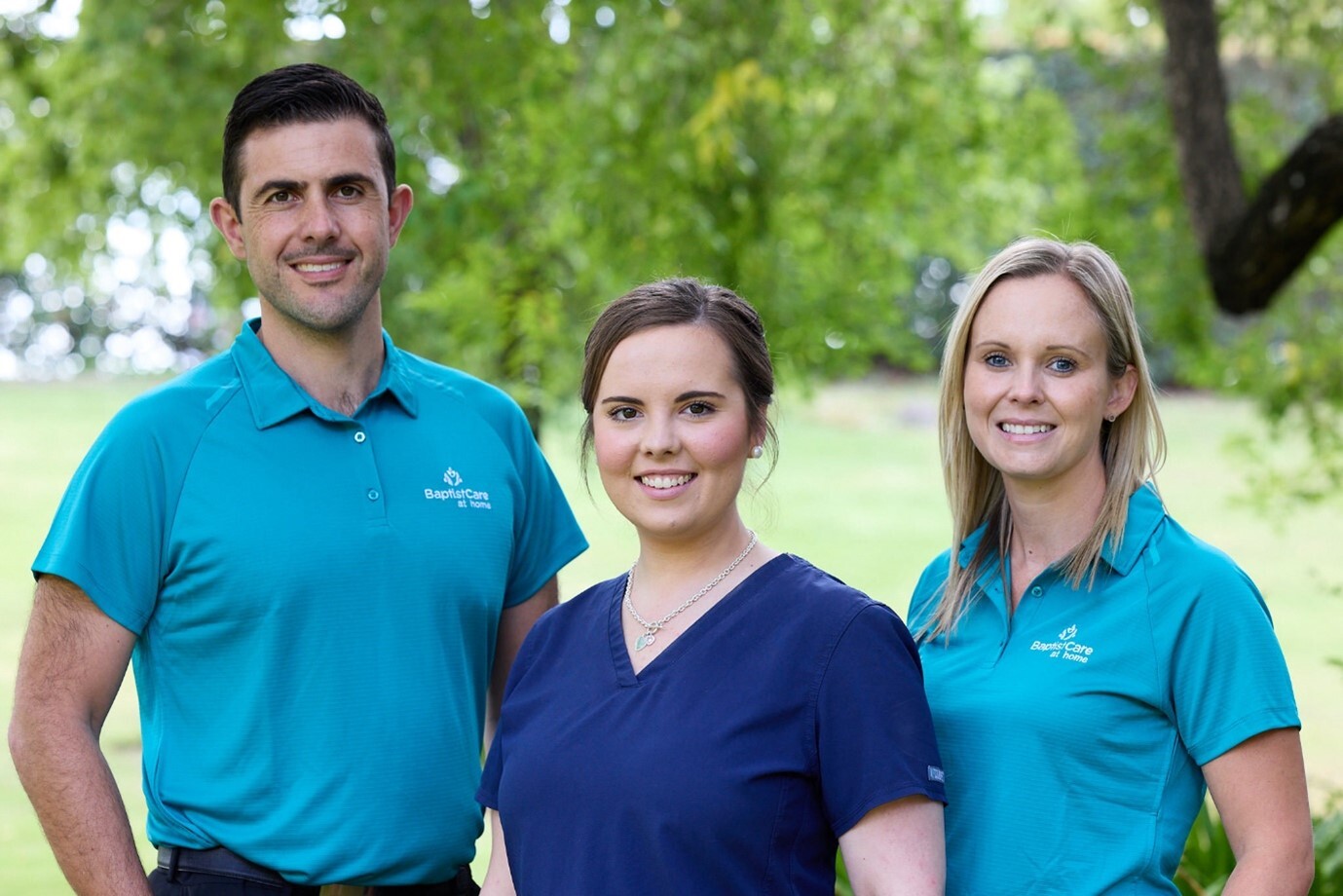
The role of allied health professionals in the community is to reduce the need for medical intervention and minimise the risk of falls.
Allied health services can be incorporated into your government-subsidised Home Care Package or Commonwealth Home Support Program.
How can allied health services prevent the risk of falls?
Ann and Amanda say it starts with an initial assessment conducted in the comfort of your own home.
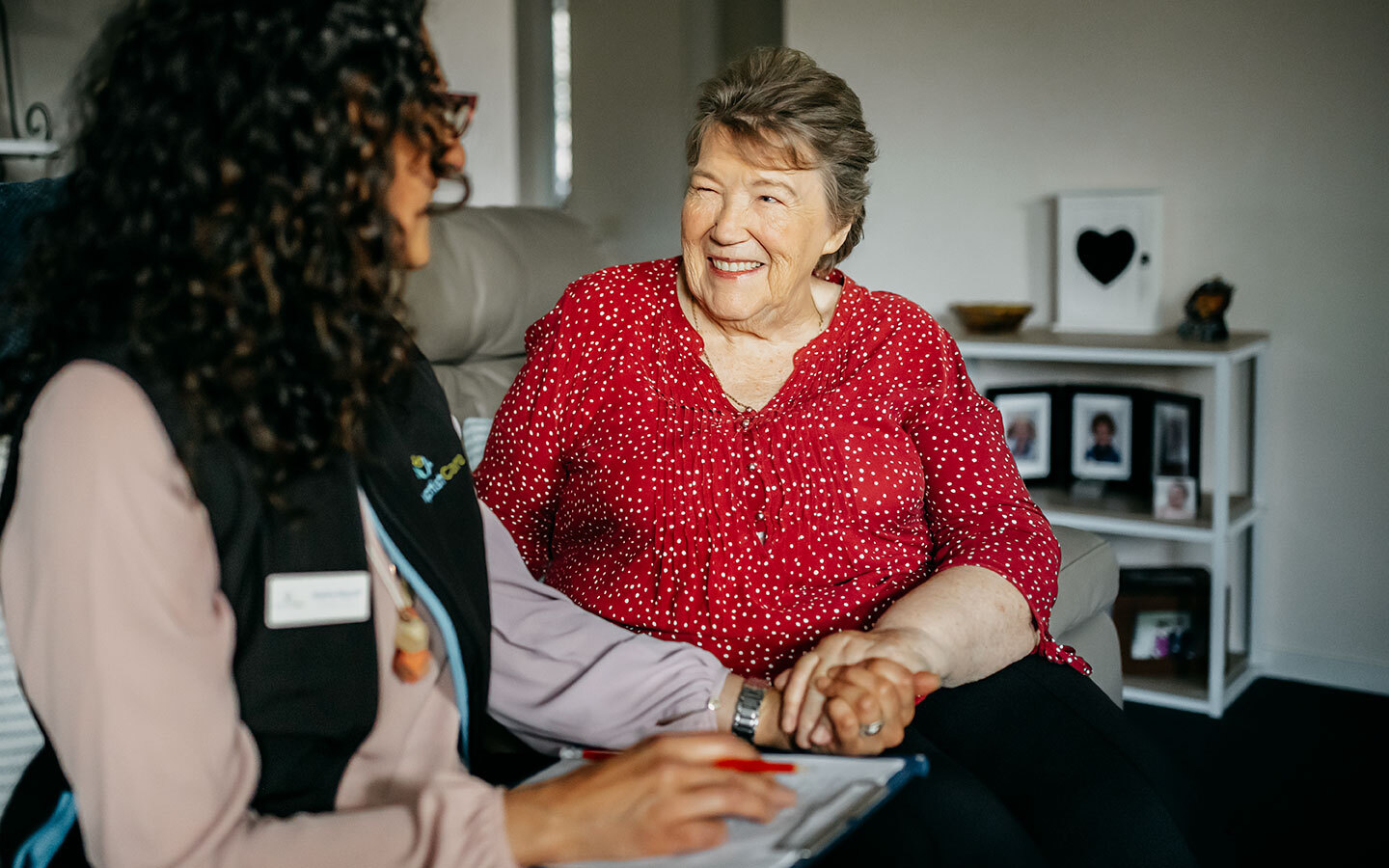
“At BaptistCare, our allied health initial assessments are comprehensive, and tailored to each person – we consider all the risk factors for a fall,” they say.
Allied health services can support you with practical everyday solutions that might include:
1. Removing trip hazards at home
Removing or minimising hazards can be a quick way to prevent falls, for example:
- Removing clutter and creating clear pathways
- Tightening loose flooring and rugs
- Clearing any cables or loose electrical cords
- Tucking in overhanging bedspreads
2. Installation of minor or major home modifications
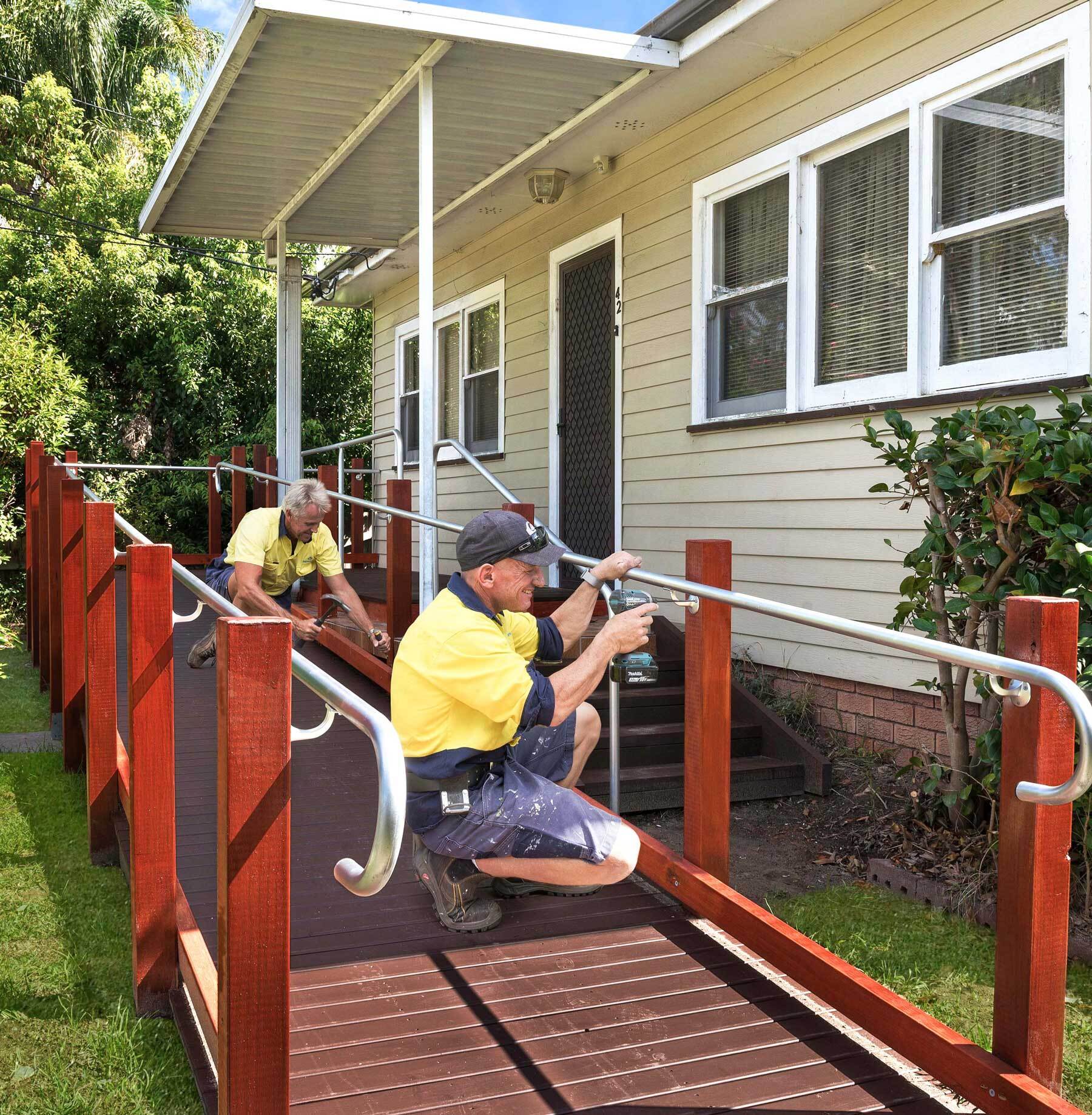
If you are eligible for a Home Care Package or the Commonwealth Home Support Program, you can often use this government subsidy to help fund changes to your home that support you to live safely and well, for example:
- Installing grab rails in bathrooms
- Attaching sturdy handrails on your staircases
- Using a shower chair or stool
- Installing ramp access to your home
3. Using assistive devices to support your wellbeing
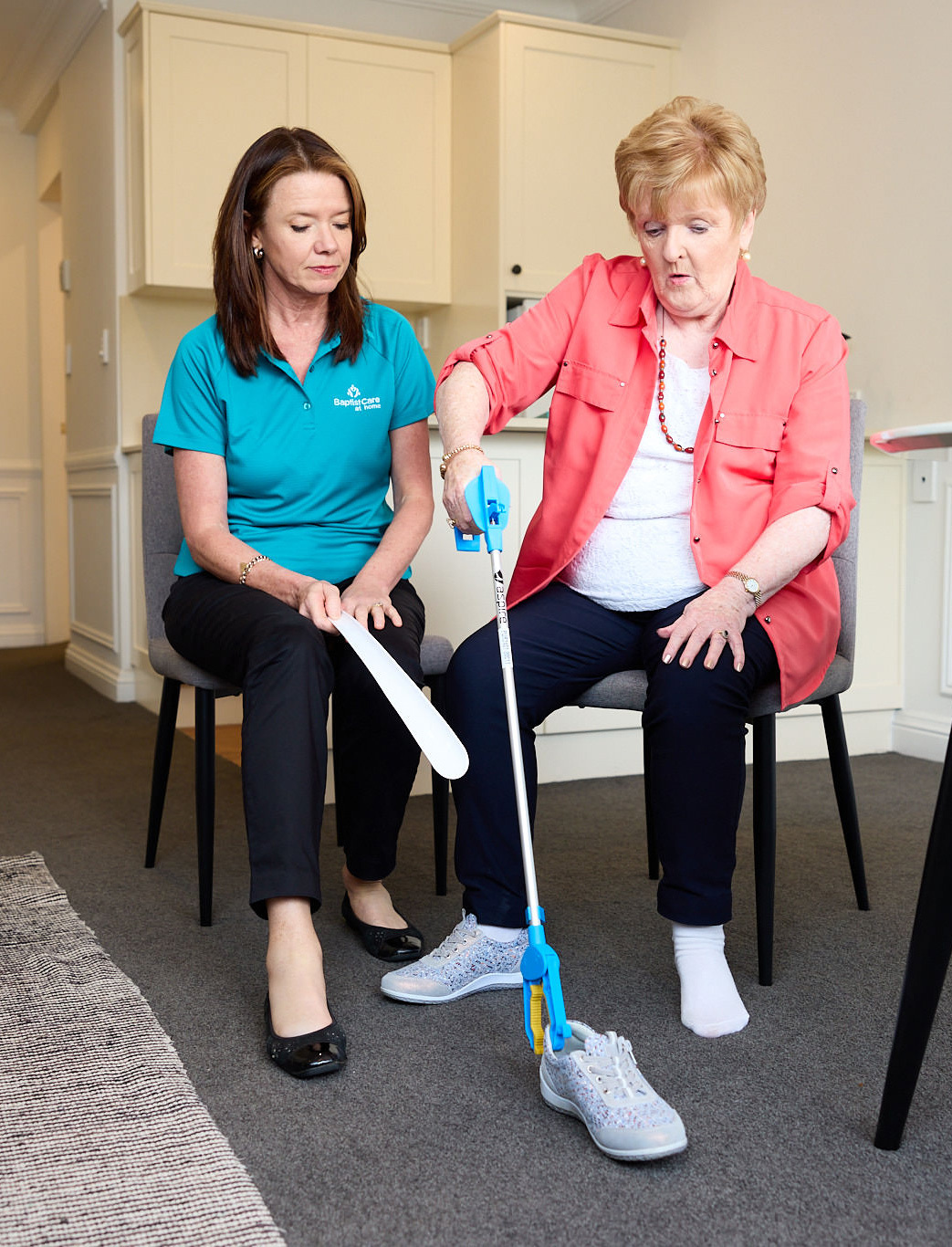
You may have never known that these handy tools existed, but they can significantly impact your daily life! For example:
- A long-handled aid to help reach lower limbs or pick things up off the floor
- Using a personal alarm with a fall detector - the alarm is activated if there is a sudden movement like a trip or fall. This can offer peace of mind for you and your family. Some personal alarms also have GPS so your loved ones can locate you in a crisis.
4. Ensuring good lighting
Good lighting is vital in preventing falls.
“Plugging in a few nightlights around the house to help you see your way to the bathroom at night is simple and effective,” says Amanda.
“It’s also a good idea to install outdoor sensor lighting to help you navigate outside pathways and stairs after dark.”
5. Introducing healthy habits
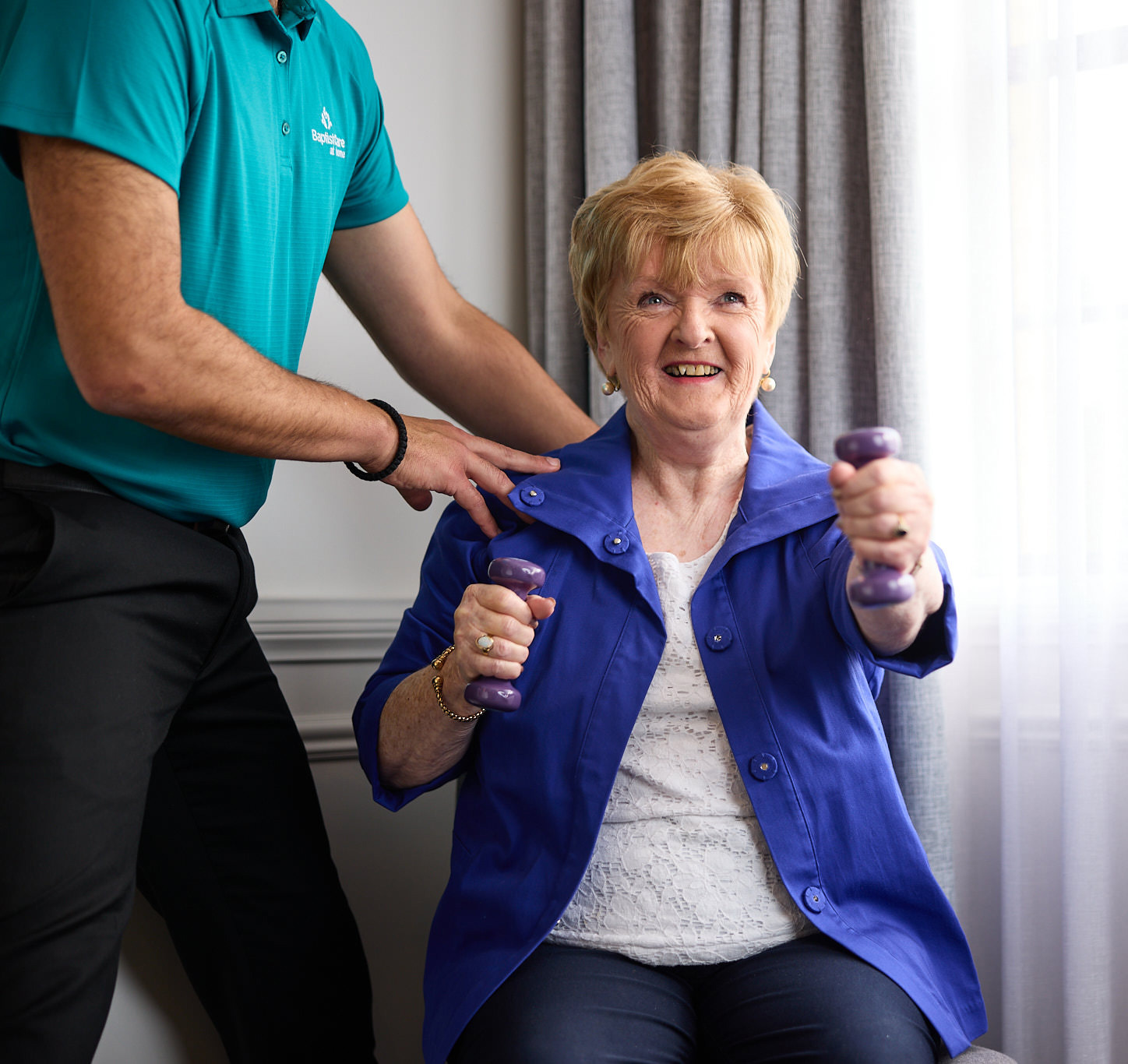
It doesn’t have to be an overhaul of life as you know it but introducing a few healthy changes here and there can lower the risk of falls—and, therefore, the chance of severe injuries or a move to residential care.
Your allied health professional might recommend some of these everyday tips:
- Joining a strength and balance program – your physiotherapist can recommend one that keeps you active, strong, and flexible and maybe gets you out socialising too! “People can improve their balance at any age,” says Ann. “It’s important that the exercise actually challenges you - for example, walking is very good for your health but isn’t usually enough to improve balance. Instead, activities like lawn bowls, tai chi, and yoga are perfect for building strength and balance.”
- Join a resistance training group like water aerobics
- Exercise caution when using bifocal lenses as these can disrupt your sense of depth perception and contribute to a fall – speak to your Optometrist if you’re concerned.
Of course, it’s always recommended that you follow the advice of your Care Facilitator, General Practitioner, or allied health professional before starting a new exercise regime.
Managing a fear of falling
The fear of falling is common, particularly if you have had a frightening or traumatic experience – perhaps you fell and weren’t able to get up for a long time, or you suffered some painful injuries.
“If someone has lost their confidence, telling them to join a community exercise class is not realistic or safe. It may not even be suitable,” says Ann.
“The first step is encouraging them to complete a personalised allied health assessment.
“This can address all the relevant risk factors and help them work towards their goals and continue doing what they enjoy most.”
Allied health services with BaptistCare at home
BaptistCare at home is one of Australia’s largest and most trusted providers of allied health services for seniors.
For 80 years, we’ve been delivering loving, respectful, and reliable care to people across NSW, ACT, and WA.
If you would like to learn more about BaptistCare’s home care services, our friendly team is here to help.
Please call 1300 275 227 (Monday to Friday, from 8:00am to 6:00pm) or email us atask@baptistcare.org.au;